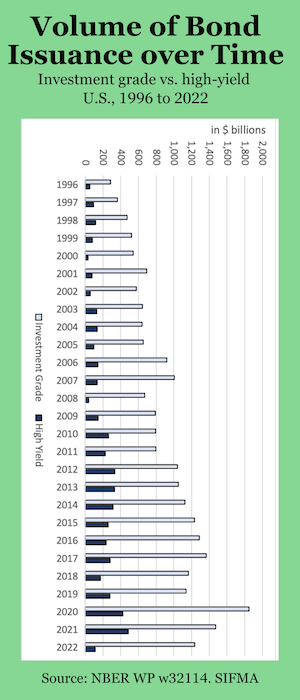While the SEC collects a lot of different viewpoints on the fiduciary standard, it might help to spend a little time focusing on the bigger-picture issue that “fiduciary” is trying to address. After all, what’s the point of introducing a fiduciary regulatory scheme into a marketplace that has been functioning profitably and efficiently without it?
You can see this point most clearly if you step back and recognize how differently the financial services world—primarily the brokerage area—operates from the way we do business in virtually every other area of our free market economy.
When I first came into the world of finance, as editor of Financial Planning magazine, one of the first things that sales producers and brokers told me is that every securities transaction has a “winner” and a “loser.” The “winner” had either paid less than the security was actually worth in a free and open market, or had sold something that was worth less than what he charged. In most cases, it was the latter.
Many advisors and brokers back then were selling limited partnerships for significant (8% and up) commissions plus “due diligence” trips to exotic locations as a reward for their selling prowess, plus various overrides, dinners, etc. The fact that virtually all of these investments blew up and lost all or nearly all of their value in the subsequent years suggests that the focus was not on due diligence, analysis or what was best for the consumer.
I still hear this “winners and losers” phrase today in the brokerage world, particularly whenever the brokerage firm’s own products are sold, or when the firm is selling products out of its own inventory. Sometimes the process gets out of hand and the difference between actual value and what is paid becomes too egregious to ignore.
When Banker’s Trust, for instance, was selling complex derivative securities and the brokers then chortled (on recorded calls) about how much had been taken out of the opaque product by the company (“That’s the Banker’s Trust difference…”), the line had visibly been crossed from sharp dealing to forthrightly screwing the customer.
The recent Goldman Sachs imbroglio captured the firm at a moment when its own interests were different from those of the customer in unusually visible ways. Most of the time, we don’t have this level of visibility, because in the investment world even stocks and bonds that you overpaid for eventually make you money. You make less money than you would have made in a fair transaction, perhaps a lot less—which may be why brokers use another phrase so often: “A bull market hides all sins.”
But let’s stop for a moment and look at other professions and industries in our free marketplace, and recognize how different the brokerage mentality is from… everybody else. When you buy groceries or a new pair of jeans, the store takes a markup, but essentially there’s a fair exchange of value in the transaction—and no visible winners or losers. When somebody buys my newsletter service, I work hard to ensure that the buyer will get more value than what he/she paid me. In my experience, most financial planners operate under the same general ethos.
The “point” of the fiduciary standard is to eliminate this persistent—and unusual, in our marketplace—adversarial relationship between broker and customer, and most especially to rid the financial services marketplace of situations where the customer who is about to enter into a transaction doesn’t realize that there is an adversarial relationship.
This, incidentally, explains very clearly why the independent RIA community of advisors views with great distrust FINRA’s overtures to take over regulation of advisors. FINRA’s regulatory structure boldly endorses this adversarial business model—and, worse, the organization has a poor track record of preventing abuses of it. Indeed, in the past, FINRA seems to have had a high tolerance for practices which visibly benefited the brokerage firms at the expense of their customers—precisely the opposite of what we would want from those acting as protectors of the consumer.
Somehow, the largest financial services organizations in the U.S. marketplace have managed to exempt themselves from the way that most companies do business. Instead of competing on quality, brand and price—as, say, the manufacturer of shoes, groceries, furniture or computers do—they have found ways to generate their profits based on incomplete information and the financial illiteracy of American consumers.
They are not alone (recent revelations about the activities of mortgage brokers comes to mind), but the market meltdown and sales of junk products and revelations of ultra-sharp dealing and subsequent legislation all point to the conclusion that free markets function most effectively, safely and perhaps even profitably whenever the product and service providers strive to provide maximum value for the dollars they receive from the consuming public. A fiduciary standard would codify this behavior in an industry that is unfortunately unfamiliar with its most basic concepts.
The SEC might consider one more issue as it gathers its facts and opinions. Look at the motives of those who are in favor of a fiduciary standard, and at the motives of those who oppose it. Those in favor—generally the most informed consumers and members of the RIA community—have very little to gain, personally and professionally, from their advocacy. The astute consumer will find the fiduciary needle in a haystack regardless of the regulatory structure. RIAs are actually advocating for more meaningful standards imposed on professionals like themselves. Their opinions should, I would argue, be given more weight, because instead of protecting their own wallets and pocketbooks, they are speaking up for the consumer and what they believe is right.
The brokerage firms, meanwhile, are protecting extremely lucrative sources of revenues, including profit margins dramatically higher than most American businesses. I would argue that the SEC should give their arguments less weight in the fiduciary debate. Not only are they predictable and self-serving; they are also visibly not in the interests of the retail financial customer.
I think we can call a spade a spade here: The brokerage firms, in their lobbying efforts, are asking for the continued license to put their hands into the pockets of their customers. FINRA, meanwhile, seems by its regulatory behavior to believe that putting hands into the pockets of consumers is a perfectly acceptable business model, so long as there are limits on how much of the consumer’s wallet can be removed, unseen or unnoticed, in any single transaction.
On the other side of the argument, RIAs and those who advocate for a fiduciary standard are asking the SEC to create a regulatory structure such that, if any money comes out of the consumer’s wallet, it is intentional on the part of the consumer—and, further, that there be a good-faith effort by the other party in the transaction to provide at least as much value and benefit as the monies paid.
As a fiduciary advocate myself, I find myself wondering: “Is there any way that should be considered an unreasonable request? Who would argue that it is?”
If the SEC needs more information on this specific set of comments, I recommend that its research team talk to brokers off the record, preferably off-hours. They’ll tell you that in most, perhaps all of their securities transactions, there is a winner and a loser. Some of the largest financial services institutions in the world, with their considerable resources and expertise, abetted by widespread financial illiteracy, have created an environment where the consistent loser is the consumer.
As the SEC gathers information on the fiduciary standard, I hope it will not lose sight of the whole point of the exercise: Is this the kind of marketplace we would want for American consumers? Is this “winners and losers” marketplace consistent with the SEC’s mandate to protect consumers?
Bob Veres is publisher of Inside Information and a columnist for Financial Planning magazine.
© 2010 RIJ Publishing LLC. All rights reserved.


